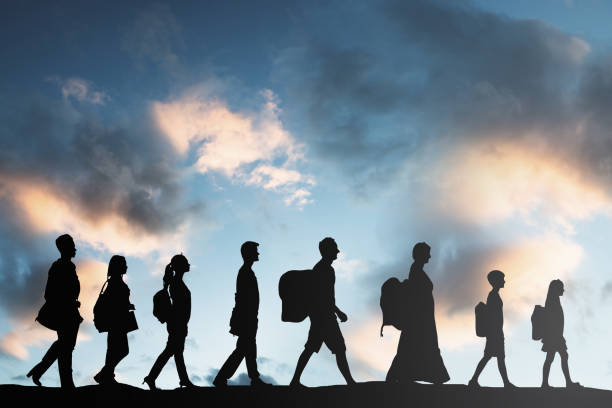By Nakanwagi Alice
Uganda, a global leader in refugee hosting, has accommodated more than 1.5 million refugees as of February 2022.
The significant influx of refugees into Uganda is primarily driven by crises in neighboring nations, particularly South Sudan and the Democratic Republic of the Congo.
These crises are compounded by economic hardships and political instability in the region.
Uganda has adopted relatively accommodating policies for refugees, granting them essential rights such as access to education, employment, private property, healthcare, and other fundamental social services.

Here, we outline the legal rights and protections afforded to refugees in Uganda:
Right to Seek Asylum; Refugees have the right to seek asylum in Uganda, safeguarding them from being returned to perilous situations.
Uganda strictly adheres to the principle of non-refoulement, preventing the forced return of refugees to countries where they could face persecution.
Freedom of Movement; Refugees within Uganda enjoy the freedom of movement, extending beyond camps to live in settlements or urban areas.
The “Refugee Self-Reliance Strategy” supports refugees in becoming self-sufficient contributors to the local economy.
Access to Education; Refugee children in Uganda have equal access to primary and secondary education, thanks to government and humanitarian efforts.
Access to Healthcare; Refugees are entitled to healthcare services in Uganda, including government health facilities, with support from organizations like the UNHCR.1
Right to Work; Refugees are allowed to work and engage in self-employment, promoting self-reliance and entrepreneurship.
Documentation; Refugees receive identity documents from the Ugandan government or UNHCR, which facilitate access to services and exercise of their rights.
However, despite these legal safeguards, Uganda faces challenges in managing and caring for its refugee population, primarily due to limited land, food, and resources as elaborated.
To begin with, High poverty rates, rising inflation, and reduced social services provided by humanitarian organizations in 2023 are increasing tensions within the refugee and host communities.
Refugee children encounter difficulties in accessing education and safety, with rising malnutrition rates. Overcrowded classrooms and staffing gaps in support services compound the challenges.
About half of the country’s refugee population (48%) live in poverty, compared to 17% for hosts. Poverty among refugees is highest in the West Nile region where close to 60% of refugees are poor and around 30% of hosts are poor.
Existing basic services and facilities are strained to their limits, with health workers overwhelmed, attempted suicide cases on the rise, and declining latrine coverage in refugee settlements.
In Uganda, there is approximately one doctor to every 24,000 citizens, and one nurse per every 11,000. This has presented challenges in caring for refugees.
Living conditions for refugees in Uganda are precarious, with nearly half living in poverty, particularly in the West Nile region. Food security remains a concern for both refugees and host communities, aggravated by high dependency ratios among refugee households.
While donations have supported the Uganda Country Refugee Response, additional funding is crucial. Despite raising $360 million USD by September 2022, less than half of the total needs have been met, resulting in budget reprioritization and a negative impact on addressing growing needs.
These challenges highlight the complex and demanding nature of hosting refugees and the need for comprehensive solutions and international cooperation.


The author is a 2nd-year Law Student at Nkumba University.






